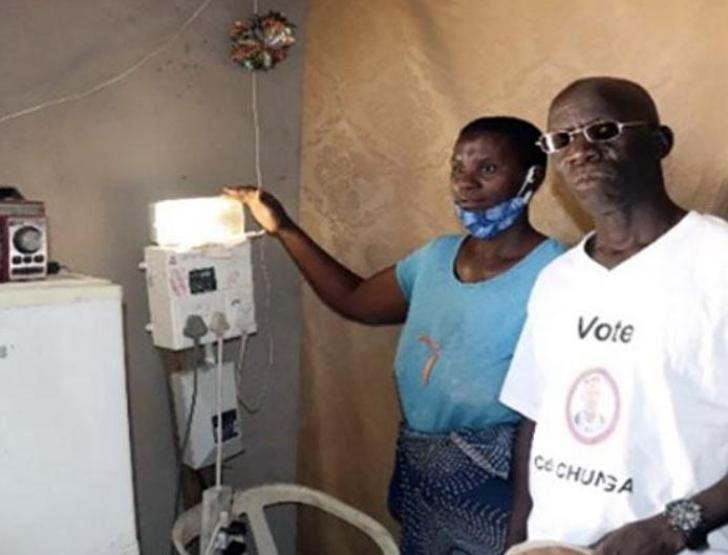News / Africa
International hunting brightens Namibian villages
30 Apr 2025 at 08:29hrs |
160 Views

When you enter Southern African hunting communities involved with international hunting and talk to the local residents, you soon discover their win-win co-existence with wildlife.
This has been the experience of this writer for many years during field interviews with international hunting communities.
This month, he interviewed the Caprivi Strip-based hunting communities' representatives, right in the heart of the Zambezi Region where Botswana, Namibia, Zambia and Zimbabwe share borders.
The area is teeming with wildlife.
When international hunting was introduced there in the late 1990s, it completely changed the villagers' lives for the better.
The lives of the Bamunu Conservancy in the Zambezi Region of Namibia, have been totally transformed for the better, since the introduction of international in the late 1990s.
Ms. Rejoice Manga Mani, a resident and manager of the Bamunu Conservancy, said that international hunting has brought electricity to five villages so far.
"Even though we are still in the first phase, most of our communities have received electricity," she said.
Previously, the area was plunged into darkness when night fell. Almost everything fell silent except the sounds of roaming wildlife.
Now families can move freely and happily in and around their homesteads.
Schoolchildren can study at night, creating the potential to improve their academic achievements.
This in turn creates opportunities to improve their standard of living when they later use their academic qualifications to become gainfully employed.
Income from international hunting has also funded the drilling of boreholes, making clean drinking water readily available, which is essential for both villagers and wildlife's survival.
This interdependence illustrates a win-win beneficial relationship between wildlife and residents.
Also, in the Caprivi Strip right inside the Zambezi region, the Salambala Conservancy, managed by Mr. Livanda Fabian and has great international hunting benefits.
The villagers from the Conservancy are enjoying wide-ranging benefits from international hunting income support, including construction of schools, boreholes, bursaries for school children to do further studies and anti-poaching activities.
Mr Levanda emphasised that the international hunting income is shared with the community, with 50% allocated for capital projects and 50% for conservation related costs.
About the writer: Emmanuel Koro is an award-winning environmental journalist based in Johannesburg, focusing on environmental and developmental issues in Africa.
This has been the experience of this writer for many years during field interviews with international hunting communities.
This month, he interviewed the Caprivi Strip-based hunting communities' representatives, right in the heart of the Zambezi Region where Botswana, Namibia, Zambia and Zimbabwe share borders.
The area is teeming with wildlife.
When international hunting was introduced there in the late 1990s, it completely changed the villagers' lives for the better.
The lives of the Bamunu Conservancy in the Zambezi Region of Namibia, have been totally transformed for the better, since the introduction of international in the late 1990s.
Ms. Rejoice Manga Mani, a resident and manager of the Bamunu Conservancy, said that international hunting has brought electricity to five villages so far.
"Even though we are still in the first phase, most of our communities have received electricity," she said.
Previously, the area was plunged into darkness when night fell. Almost everything fell silent except the sounds of roaming wildlife.
Schoolchildren can study at night, creating the potential to improve their academic achievements.
This in turn creates opportunities to improve their standard of living when they later use their academic qualifications to become gainfully employed.
Income from international hunting has also funded the drilling of boreholes, making clean drinking water readily available, which is essential for both villagers and wildlife's survival.
This interdependence illustrates a win-win beneficial relationship between wildlife and residents.
Also, in the Caprivi Strip right inside the Zambezi region, the Salambala Conservancy, managed by Mr. Livanda Fabian and has great international hunting benefits.
The villagers from the Conservancy are enjoying wide-ranging benefits from international hunting income support, including construction of schools, boreholes, bursaries for school children to do further studies and anti-poaching activities.
Mr Levanda emphasised that the international hunting income is shared with the community, with 50% allocated for capital projects and 50% for conservation related costs.
About the writer: Emmanuel Koro is an award-winning environmental journalist based in Johannesburg, focusing on environmental and developmental issues in Africa.
Source - Emmanuel Koro
Join the discussion
Loading comments…






























